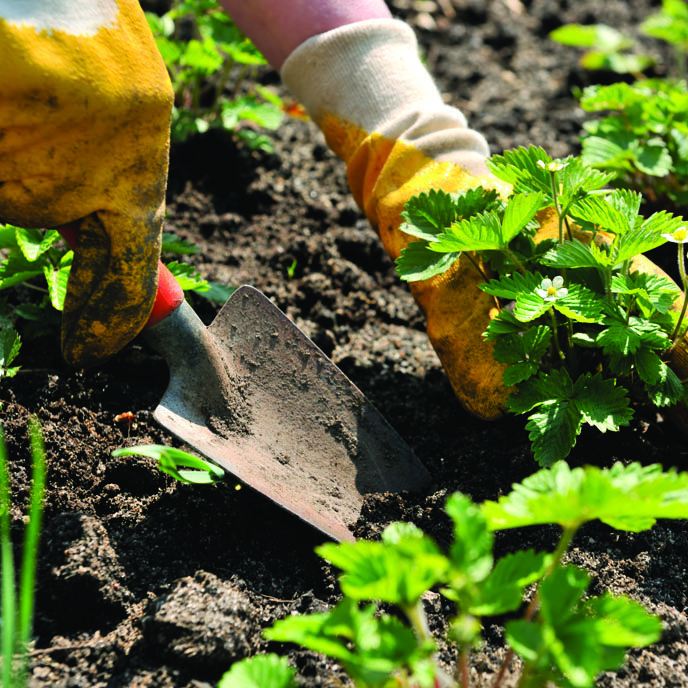Lasting Gardening Practices for an Eco-Friendly Garden
Lasting Gardening Practices for an Eco-Friendly Garden
Blog Article
Opening the Benefits of Horticulture: A Thorough Consider the Different Types and Their Effect On Health
Checking out the multifaceted advantages of horticulture discloses a range of practices that significantly enhance private wellness. From vegetable and herb yards to container and raised bed setups, each type supplies distinct advantages that prolong past plain growing. These tasks not just foster physical wellness via energetic interaction yet also add to mental health by easing stress and encouraging mindfulness. As we examine these diverse gardening techniques, it ends up being apparent that their impact can resonate on individual, social, and ecological degrees, prompting a closer consider how these links develop a cohesive narrative of alternative health and wellness.
Sorts Of Gardening

Flower gardening, one more prominent group, emphasizes the visual appeal of cultivated blossoms. This type can improve landscapes and promote biodiversity by bring in useful pollinators. Natural herb gardening includes expanding fragrant and culinary plants, contributing both to food preparation and all-natural treatments.
Container gardening offers convenience, making it possible for people with restricted room to take part in horticulture by utilizing pots and planters. This method is especially popular in city setups. Increased bed horticulture, on the other hand, includes producing elevated stories that improve soil water drainage and access, making it easier for gardeners to manage their plants.
Lastly, community gardening cultivates cooperation amongst people in common rooms, promoting social interaction and cumulative duty. Each kind of gardening serves distinct purposes and satisfies different preferences, making gardening a flexible activity that can be tailored to private needs and atmospheres.
Mental Health And Wellness Advantages
Participating in different kinds of horticulture not just produces substantial benefits such as fresh produce and lovely blossoms but likewise offers substantial mental health advantages. Study shows that horticulture can be an effective device for decreasing stress and anxiety, anxiety, and anxiety. The act of having a tendency to plants and cultivating a yard promotes a sense of function and success, which can improve overall emotional well-being.
Furthermore, gardening motivates mindfulness, as it requires individuals to concentrate on the present minute, whether it be growing seeds or nurturing growth. This mindfulness technique can bring about decreased rumination and improved state of mind security. The exposure to natural surroundings throughout horticulture has likewise been linked to boosted cognitive operating and lowered sensations of fatigue.
Social communication plays an important role in mental health and wellness, and neighborhood gardening efforts give opportunities for people to get in touch with others, fostering a sense of belonging. The common experience of horticulture can cultivate relationships and support networks, better boosting emotional strength.
Physical Health And Wellness Benefits
Lots of individuals might not realize that gardening likewise offers considerable physical health and wellness advantages. Participating in horticulture tasks calls for a range of physical movements, including bending, training, excavating, and growing, which collectively contribute to enhanced toughness, flexibility, and endurance. These activities can boost cardiovascular health and wellness by advertising a raised heart price, consequently minimizing the threat of cardiovascular disease.
Moreover, horticulture can act as a moderate-intensity exercise, helping individuals accomplish recommended physical task levels. Studies indicate that normal participation in horticulture can melt significant calories-- about 200-400 calories per hour, depending on the intensity of the jobs performed. Such calorie expense is valuable for weight administration and general metabolic health.
In addition, exposure to sunlight throughout horticulture can facilitate the synthesis of vitamin D, which plays an important function in maintaining bone health and supporting immune function. Additionally, the act of horticulture usually entails working with soil, which has been linked to potential psychological and physical health advantages because of the presence of advantageous microorganisms. Gardening.
Social Connections With Gardening
The common elements of gardening foster meaningful social connections among individuals. Area yards, specifically, offer as dynamic hubs where people from diverse histories come with each other, growing not only plants however also relationships. These common areas urge partnership, permitting individuals to trade expertise, abilities, and sources, therefore enhancing their horticulture experience and fostering a feeling of belonging.
Engagement in horticulture tasks usually leads to the formation of friendships and assistance networks. Participants regularly address join for usual goals, such as growing periods, harvest parties, or academic workshops, which top article strengthen social connections and produce a sense of area. Such interactions can alleviate feelings of isolation and improve psychological wellness, as individuals locate companionship and friendship in shared endeavors.
Environmental Effect of Gardening
Gardening significantly adds to environmental sustainability in multiple means. One of the most notable advantages is the improvement of biodiversity. Home yards provide vital habitats for numerous varieties, including pollinators such as bees and butterflies, which are necessary for ecological community health and wellness. By growing varied plant species, gardeners can develop a well balanced setting that supports both plants and animals.

In addition, yards play a crucial duty in water preservation. Well-planned landscapes, consisting of indigenous plants and xeriscaping, decrease water use and avoid runoff, therefore safeguarding neighborhood rivers from air pollution.
Final Thought

In final thought, gardening offers as a multifaceted task that enhances health throughout numerous domain names. The diverse kinds of horticulture-- including veggie, blossom, herb, container, and raised bed-- contribute to psychological and physical health, foster social links, and promote environmental sustainability. By participating in horticulture techniques, people can experience better top quality of life while also sustaining area bonds and ecological health. Inevitably, the all natural advantages of gardening emphasize its value as an important aspect in boosting total health.
Report this page